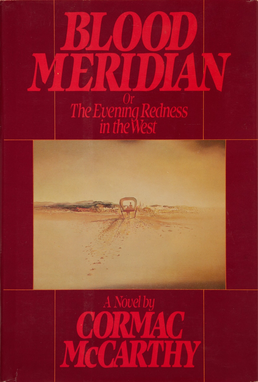Part 22
byPart 22 begins with the protagonist walking through the shadowed streets, his eyes drawn to a lonely and decaying tavern. The scene is quiet and unsettling, and before he knows it, soldiers arrive and seize him. He is soon locked in a cell, where his thoughts grow restless and consumed by the memories of the violent past that have led him here. The actions of his life, filled with bloodshed and loss, are haunting him, and his jailers take notice of his increasingly agitated state. Just as his mind is spiraling, the judge, a figure of both charm and menace, arrives to visit him. Dressed sharply and armed with weapons, the judge presents an unsettling presence. The conversation between them revolves around accountability for the atrocities of the past, with the judge suggesting that the protagonist played a significant role in the bloodshed, even in orchestrating a massacre alongside a savage partnership. The judge manipulates the dialogue, framing their intertwined fates through the chaos of war, and challenges the protagonist’s understanding of his actions.
The protagonist, still defiant, asserts that it is the judge who bears the true responsibility. The judge, however, continues to weave his manipulative narrative, explaining that true connection between men comes not from camaraderie but from a shared enemy. This statement further distorts the lines between right and wrong, as the protagonist finds himself questioning his own position in the world. With every word, the judge pushes the protagonist closer to an uncomfortable realization about his own role in the violence they are both complicit in. As the conversation reaches its peak, the protagonist, though resistant, starts to understand how much the judge has shaped his life’s path, pushing him into violence and turmoil. After this tense encounter, the protagonist briefly finds a moment of respite when a corporal speaks to him about hidden treasures, offering him a fleeting escape from the overwhelming thoughts of his past. However, his freedom is short-lived when a priest arrives, performing a ceremonial act akin to a baptism and marking the protagonist’s release from his captivity.
Once freed, the protagonist seeks medical help for an arrow wound and encounters a young surgeon eager to perform surgery. In an act of desperation, the protagonist sells his pistol to cover the medical costs, all while grappling with the sense that his fate remains out of his hands. As he continues through Los Angeles, he witnesses the grim spectacle of a public hanging, where the bodies of Toadvine and Brown are put on display for all to see. The sight is haunting and forces the protagonist to confront the harsh reality of his existence—an existence marked by violence and constant suffering. The hanging is a stark reminder of the cyclical nature of violence that permeates his world, a world where life and death are constantly intertwined. These grisly images, the public spectacle of death, and the overwhelming sense of futility linger in the protagonist’s mind as he moves through a land that seems to offer no escape from its brutal reality.
The protagonist’s journey, though filled with countless interactions and encounters with strangers, is ultimately one of profound isolation. He finds himself adrift in a world devoid of compassion, where the brutality of the past seems to perpetually echo into the present. His encounters with the suffering of others—whether through the tragic hanging or the violence he has witnessed throughout his travels—serve as stark reminders of the relentless cycle of death that defines his existence. As he continues to move through the world, he remains unable to escape the weight of the past, unable to find any closure regarding the roles played by the judge or the priest in shaping his destiny. The themes of fate, guilt, and the human condition dominate his thoughts, as he wrestles with the realization that the choices made by others, as well as his own, have trapped him in an unending loop of violence and loss. The deeper meaning of his journey, one that started with so much promise, is now a search for meaning in a world that seems indifferent to his suffering.

